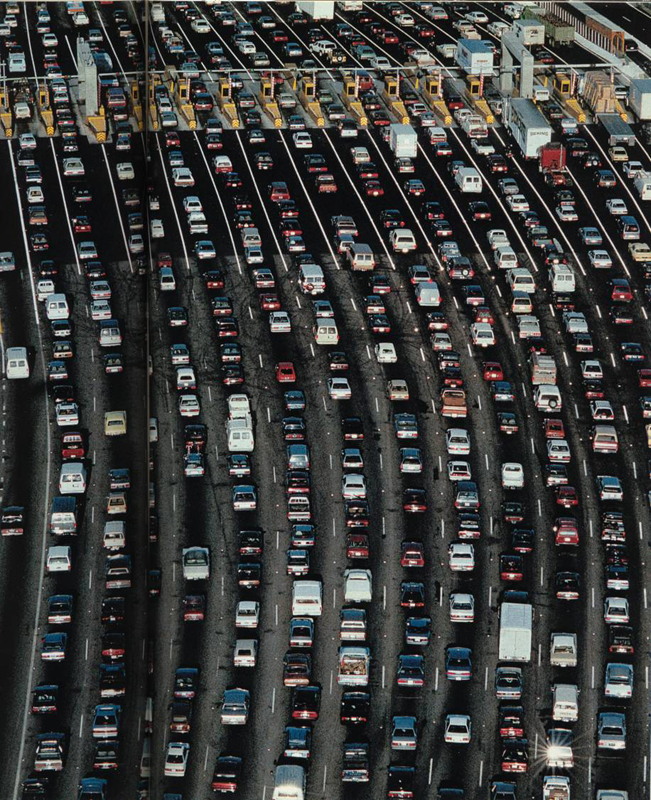Our friends over at Streetsblog have recently done a great write up on some very interesting research that is being done. The research they are highlighting is a forthcoming paper done by two University of Toronto Professors, Gilles Duranton and Matthew Turner, for the American Economic Review. The paper adds to the mounting evidence that building more roads does not ease congestion. If you are interested in all the math (which is interesting) you can find the full paper here, when it is released. We wanted to highlight some of the findings.
The overarching concept of the paper in the words of the authors is;
“For interstate highways in metropolitan areas we find that VKT [vehicle kilometers traveled] increases one for one with interstate highways, confirming the “fundamental law of highway congestion†suggested by Anthony Downs (1962; 1992). We also uncover suggestive evidence that this law may extend beyond interstate highways to a broad class of major urban roads, a “fundamental law of road congestionâ€. These results suggest that increased provision of interstate highways and major urban roads is unlikely to relieve congestion of these roads.”
The paper goes on to highlight the economic impact that transportation has on Americans, showing that 1 in 5 dollars we spend goes towards transportation. In highlighting the economic impact of our transportation choices the paper really hits the nail on the head;
“The interstate highway system eats up on the order of two dollars of every $100 of every market transaction in the United States. That’s a huge part of the economy and a huge part of people’s lives. Understanding how that works is really important; you don’t want to make mistakes on something that important. You don’t want to build roads and have them not deliver the effects that you expect them to.â€
While the findings show (in conclusion with many other studies), that the engineering practice of bigger, wider, faster is not the answer to congestion or growth issues it also shows (to our surprise) that transit is not a big help either. The solution that the paper recommends to growth and congestion issues is congestion pricing or, having a toll for high use roads at peak times. The paper says this is the only congestion alternative which seems to have any affect on the problem we are seeking to fix. This is an interesting conclusion that may be faced with some push back. However it is a conclusion that is receiving mounting evidence especially in places such as London where public opinion has changed from very negative to very very supportive.
There were two findings that really caught our eye, and at least one question that arises from this study. The first, as has been stated, is that the practice of bigger, wider, faster is not only unfriendly to communities, pedestrians, bicyclists, etc. but, it is unfriendly to the drivers they are supposed to serve. Which begs the question, does more parking create more parking problems? I suppose we will have to wait until their next report on Smart Growth comes out for the answer.
The second interesting finding of the paper is best encapsulated  in the words of the authors;
“So there are all these people out there waiting to take trips as soon as there’s space on the roads. So if somebody stays home, or if you add capacity to the road, there’s somebody there waiting to use that space.”
If, as is suggested, this extends to all road users. We can see one area that development and building could be a help to our cities instead of a constant cost and hindrance. That area is bicycle infrastructure. With little space needed, and a list of benefits to our health, air, communities, and wallets, it seems the wise place to invest some of the money that will be freed up from inefficient and ineffective roads.


1 comment